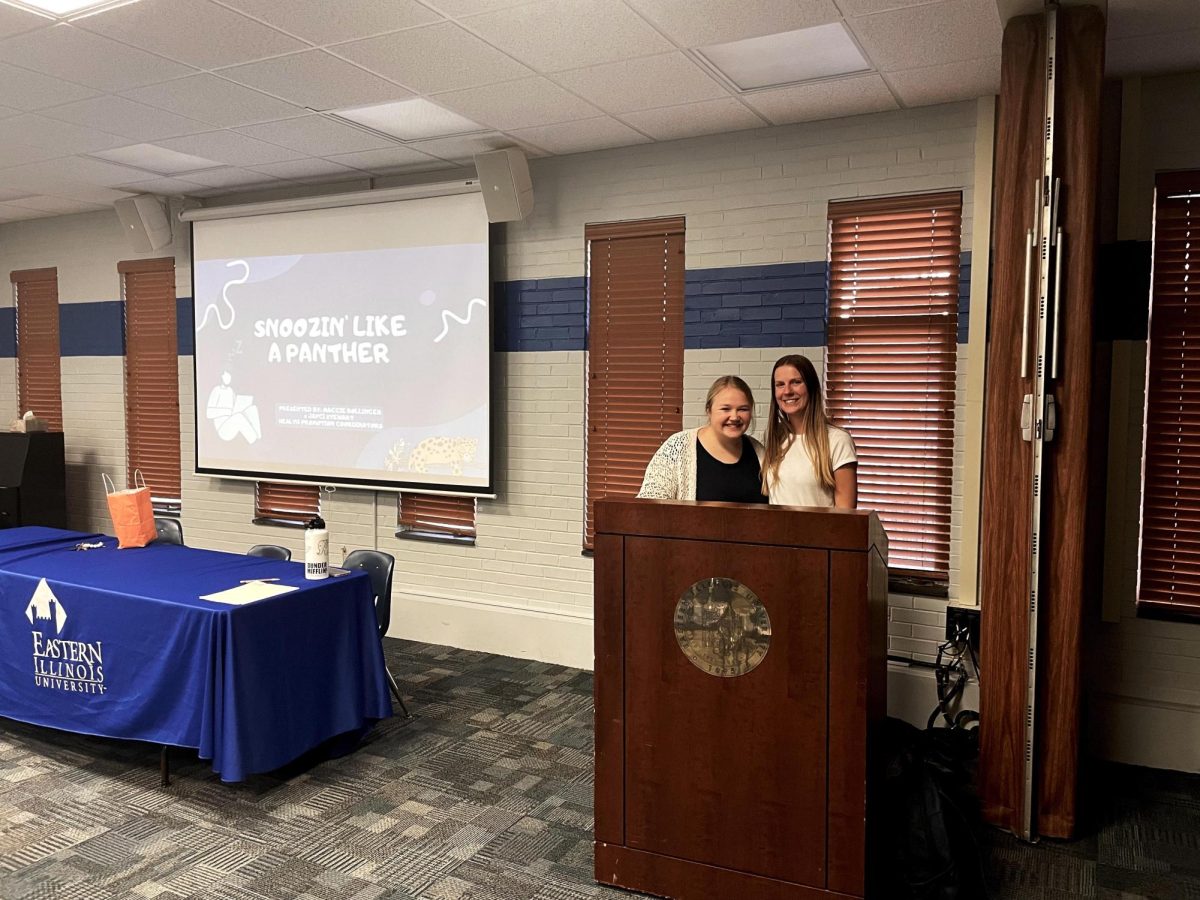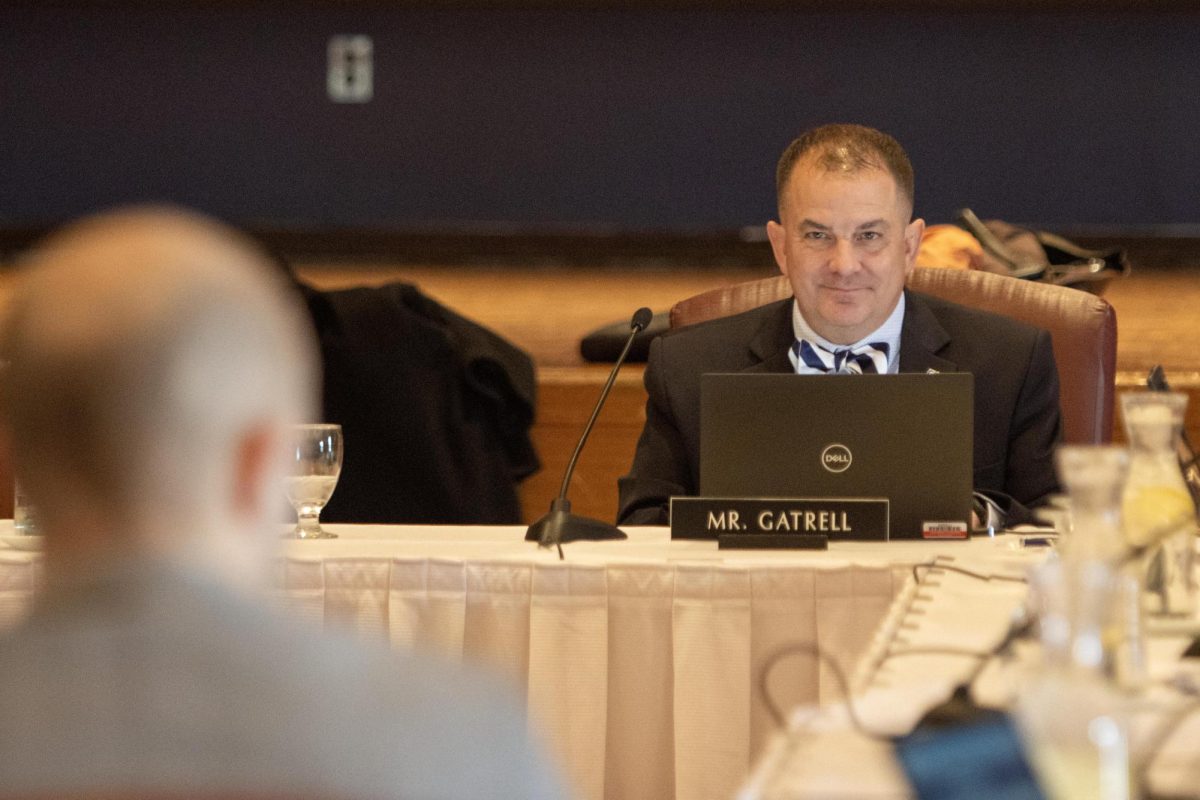When students enter college, they are lifted by a sense of freedom. Being on your own can lead to many changes in your life, including your sleep schedule. Sleep is essential to school, and most college students need more of it. This is due to a lot of common misconceptions about sleep.
On Sept. 26, the EIU Health Education Resource Center led a presentation by Jayci Stewart and Maggie Bullinger. They were able to review the importance of sleep. Both Stewart and Bullinger are first-year graduate students studying speech pathology.
The presentation was in the Charleston/Mattoon room, in the MLK Jr. Union, from 5:30 p.m. to 6 p.m. The presentation focused on sleeping habits, including how you can get a good night’s rest.
When asked what the goal of the presentation was, Stewart said, “The goal for our GA position is to help students perform better and just to improve the overall wellness of the student body because sleep is important, and a student may not realize how getting a low amount of sleep can negatively affect them.”
Cramming is one of the most common misinterpretations revolving around sleep. As college students, one thing that happens frequently is cram-studying before going to bed. Doing this activity before bed does nothing. All it is creating is stress for the next day because you will forget what you studied the night before.
Napping is also something too many college students are doing throughout the day. Even though you might be tired after class, practice, or a club, you should keep the nap between 20 to 30 minutes. Any nap that precedes over 30 minutes can affect somebody’s sleep schedule. Instead of taking long naps, wait until it is an appropriate time before bed. A person should go to bed 8 hours before they need to wake up.
Another misconception is that you don’t need that much sleep when you are young. The saying “I’ll sleep when I’m dead” is putting off a negative depiction of one’s sleep behavior. Everybody needs a good amount of sleep every night to be the best version of themselves. Even though it might be hard for some students to transition into a healthy sleep schedule, the presentation provided many solutions to the problem.
Finding a routine can be the easiest way to fix a sleep schedule. Think about what your routine before bed looks like right now. It is possible that it may not be healthy.
Avoid eating before bed because you can sometimes mistake tiredness for hunger, so when you eat, you are fueling your body, causing you to stay up longer.
Being on your phone is another mistake almost everyone makes before going to bed. Trying to fall asleep by watching a screen can stimulate your brain to make you fall asleep slower.
Instead of being on your phone, listen to sounds or music. Hearing a background noise can help some people because it relaxes the mind. If you are not relaxed and tired, you will not fall asleep anytime soon.
Caffeine is also a big part of students’ lives and causes solid sleep decline. Cutting back on caffeinated drinks, listening to background noise, and doing simple exercises like meditating can all help the body relax.
Remember to try to go to bed and wake up simultaneously every day. This vast difference in your life could help with many important aspects. Getting 7-9 hours of sleep every night can be hard for some students, but it can make a difference in sleeping habits, academics, health and sleeping problems.
If you need more guidance, Jayci and Maggie will be in the Effingham room on Oct. 4 at 6 p.m. to talk about safe sex! They can also be reached through their emails at herc-hlthpromo@eiu.edu and herc-genhelth@eiu.edu or their Instagram account, @eiu.hcs!
Jacob Adcock can be reached at 581-2812 or at jadcock@eiu.edu.






































































